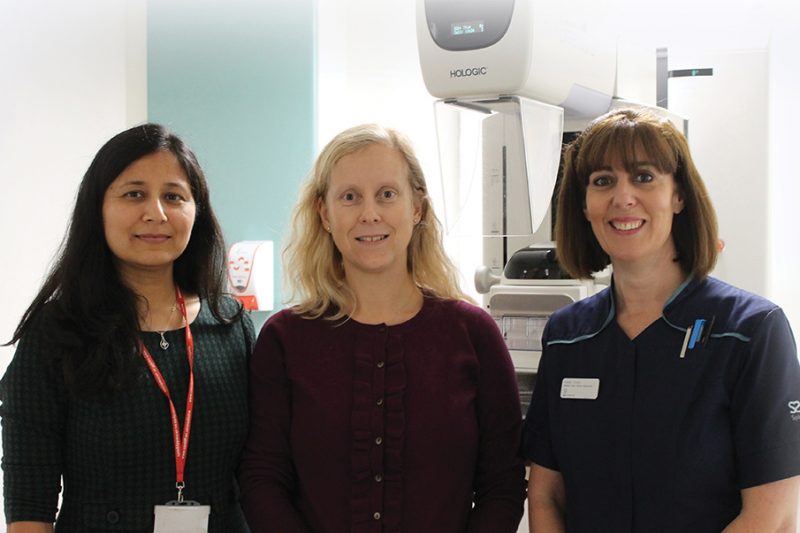Consultant Breast Surgeon at Spire Cardiff Hospital: Mrs Eleri Davies talks to us about breast cancer – and the importance of checking our breasts regularly.
Being a woman means that we are all reminded of specific cancers that affect us as a gender. However, when it comes to developing breast cancer, there are three main risk factors.

Our main risk factor is, unsurprisingly, being a woman and as such over 99% of new cases of breast cancer are in women. As we get older age impacts on the risk, with the second biggest risk being aging – more than 80% of breast cancers occur in women over the age of 50. Thirdly, is the concern that genetic predisposition can result in inheriting breast cancer gene. However, this only affects 5% of people diagnosed with breast cancer, who carry the faulty gene such as the BRCA1 or BRCA2 gene.
Many of us may not check our breast regularly – however – Mrs Davies stresses that regular checks and early action are still important weapons in a woman’s armoury when it comes to beating the disease and helping to keep treatment success figures on the rise.
If your concerned that you may not know how to do these checks properly then there are a number of websites that demonstrate the technique you should use (http://www.breastfriends.org.uk/). Being breast aware is the most important thing. This means, knowing what your breast feels like or how it looks makes you the expert in this and not your healthcare professional.

However, improvements in the treatment of breast cancer are demonstrated through the figures from Cancer Research UK which show that around 8 out of 10 women in England and Wales survive their disease for ten years or more, compared with 4 out of 10 back in the 1970s. Figures for surviving for five years or more are even higher at almost nine out of ten or 87%.
Without any doubt, early detection leads to better treatment results. That means we need to ensure that every woman knows how to carry out effective self-check procedures and, just as importantly, what to do if you think something is wrong.
It is important to get an early appointment with a GP to discuss the matter. The patient will then receive informed advice and, if necessary, be directed to the correct pathway for treatment, said Mrs Davies. Although finding a lump in your breast does not always signify breast cancer it is important that women get to know their breasts, so they can spot changes quickly.
As a note: Many women will experience lumpy breasts just before their period; and often this disappears after the period. However, it is important to keep checking and if the lump doesn’t go away then get it checked out by your GP.

Despite increasing survival rates CRUK says that about 50,000 people in the UK are expected to be diagnosed with breast cancer every year, resulting in around 12,000 deaths.
If your GP does refer you to a breast clinic what can you expect? Mrs Davies says most clinics these days offer a triple assessment approach which is considered best practice amongst breast specialists.
NICE guidelines suggest that all patients who are referred to breast clinic should be assessed in a specialist one-stop breast clinic and diagnosis is made by triple assessment (clinical assessment, mammography and/or ultrasound imaging, and core biopsy and/or fine needle aspiration cytology).
What does this mean on a practical level to you as a patient? It means that your breast is assessed in three ways so as to reduce the chance of missing anything. When you arrive at the clinic a mammogram is performed automatically if you are over 40 years old. Following that you are seen by a Breast specialist who will take your history and examine your breasts. If there is a lump or finding then an ultrasound is performed to look at this area more carefully. The third element of triple assessment is to take a biopsy using ultrasound guidance to get a diagnosis. This is performed using local anaesthetic and is usually painless. It is important to emphasize that you will not get the result of that biopsy during the clinic- it usually takes up to a week for that result to be made available. Breast clinics are run both in the NHS and private sector (Spire) and their practice is the same to maintain good practice.
Ultimately, the take-home message is if you’re worried about changes in your breast then you should seek medical advice from your GP in the first instance.
https://www.spirehealthcare.com
02920 735 515
Spire Cardiff Hospital
Croescadarn Road, Pentwyn, Cardiff, CF23 8XL







